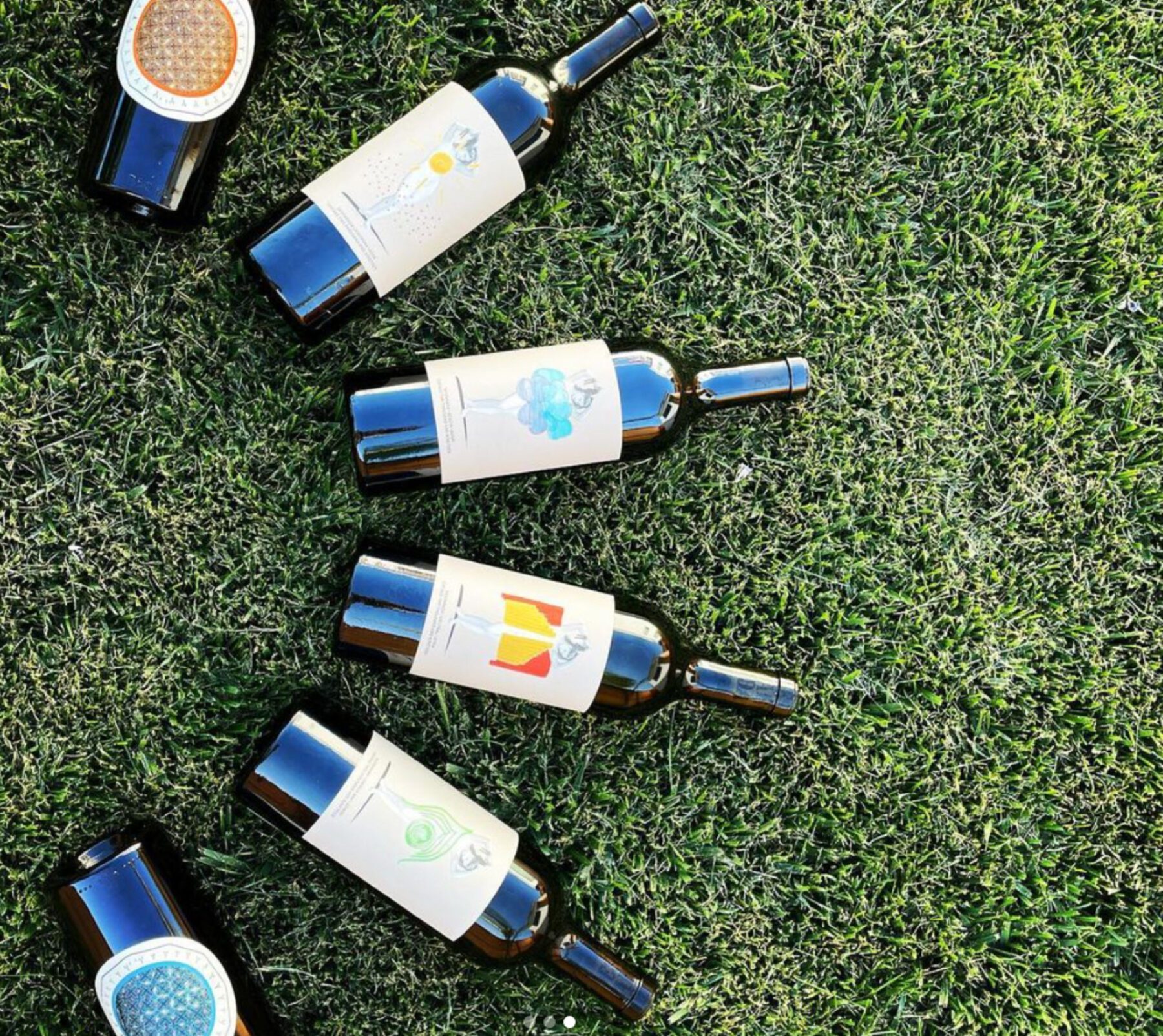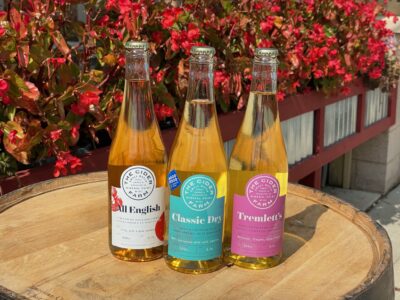“In vino veritas.” This Latin phrase roughly translates to: “In wine, there is truth.” Wine has been a fun hobby of mine. It has a special power to bring people together for meaningful conversation. Friends reconnect. Strangers find common ground. Our inhibitions are slightly loosened, emotions enlivened and a bond formed. I often find myself inspired with creative new ideas when enjoying a lovely glass of chardonnay, cabernet, or just about anything.
On a recent episode of Consensus in Conversation, I spoke with my good friends Vailia and Russell From over a glass of sparkling wine. We had great fun, and I collected a few nuggets of wisdom. This dynamic and entrepreneurial husband-wife duo are the owners of Desparada and Herman Story Wines respectively, two of the best wines in Paso Robles – certainly two of my favorites!
Like many industries, Winemaking is both an art and a science. It requires deep knowledge of the earth, agriculture, and chemistry. But, to be great necessitates creativity beyond all that. Consumers are expecting an elevated sensory experience when they toast. They want history in their glass. They hope for inspiration in each sip. The smell and the various flavors all combine to share the winemaker’s vision. When it works, it can solicit an emotional response. Similarly to other artistic expressions, an aesthete, or connoisseur, must have an understanding of the entire winemaking process to truly appreciate what they are experiencing. As Paul Giamatti’s character in the film, Sideways explains, “Only somebody who really takes the time to understand wine’s potential can then coax it into its fullest expression.”
While the artistic dimensions of wine are fascinating to cork dorks like me, they also give the industry its pretentious stereotype. Wine should be enjoyed by everyone, and many innovators in the field have long tried to shed this negative elitist perception. Take the infamous Judgment of Paris, which shattered the old belief that fine wines could only come from Europe. In 1976, a group of bold Californian winemakers traveled to Paris and entered their wines into a blind-tasting competition with the best French varieties. Many of the start-up Californians’ entries won – proving that great wine can come from all over the world.
Vailia and Russell carry on this tradition and have created a portfolio of wines that anyone can appreciate, not just the aficionados. They maintain, above all else, that taste is the most important factor in creating great wine. As such, their products exude a sense of fun, encouraging people from all backgrounds to come together to enjoy a glass.
Here are a few of the wine-inspired business lessons I gleaned in our happy hour:
Great Entrepreneurs Come From Many Backgrounds: There is no single path toward success. Everyone has a unique journey and brings their personal perspective to create products that only they can imagine. Vailia and Russell From come from different backgrounds but have both created successful wines that reflect their strengths. Before founding Desparada, Vailia worked across all aspects of the wine business. She’s worked on restaurant floors, and in sales, and immersed herself in the complex import/export market. Vailia did not have formal technical training in winemaking, but her comprehensive resume gave her the knowledge to design a successful company. As she continued to build upon her industry knowledge, she grew and developed her vision for her wine. On the other hand, Russell was formally trained. He studied ag business at Cal Poly – giving him expertise in wastewater management and agricultural science surrounding wine growing. He worked for larger, established wineries. His resume gave him the expertise to start his own business selling over 8,000 cases annually. In both instances, their paths reflected their personal journeys and not a pre-mapped route.
Think Deeply About What Sustainability Means: Every industry defines ‘sustainability’ differently. What matters is instilling a vision that stewards the world for future generations. For a business to truly be sustainable, it must go beyond any singular definition to consider the industry, company, needs of the planet, the surrounding community, and consumers. This is easier said than done, but the work of Vailia and Russell proves that companies of all sizes can implement these goals. Like many of us, this couple was inspired by nature to make this commitment. They were fascinated by the complex ecosystem on nearby York Mountain. The two business owners could see colorful flowers and mountain lions among the verdant grapevines. This led them to think about the definition of organic – more than just avoiding pesticides, herbicides, and all other kinds of chemicals. As Russell pointed out, far too many “nuke the ground” before they begin, which can kill bugs and weeds for generations only to use ‘organic’ practices once they begin farming or making wine. Is that truly sustainable?
Vineyards are a monoculture, which inherently harms the soil by depriving it of various nutrients. To combat this, Vailia and Russell have experimented with cover crops, orchards, and gardens to help enrich this ecosystem. They are conscious of their noise pollution by carefully utilizing their tractors at certain times in order to keep the area peaceful, and I’m sure neighbors – both humans and animals – appreciate their conscientiousness. They have expanded the definitions of organic to encapsulate a more comprehensive stewardship of the environment during the growing process. This is a change in perception that I hope many ag-centric businesses adopt.
All Business Ventures Are A Reflection Of Their Founder: The average individual spends roughly one-third of their life at work. Because it occupies so much of our time, professional life inevitably is affected by those we work with, and work inevitably affects who we become. As entrepreneurs, who design our businesses, products, and operational philosophies, we can clearly see how our personalities and beliefs shape the fabric of our companies. The From’s maintain that their products reflect who they are as people. Vailia’s wines mix her traditionally strong, yet elegant traits to create a powerful but approachable flavor, while Russell’s are more rugged and dramatic. Neither pretends to be anything other than themselves, and this adds a sense of authenticity to their product, increasing brand loyalty. In the end, this translates to an authentic product that appeals to more consumers, growing the overall market.





